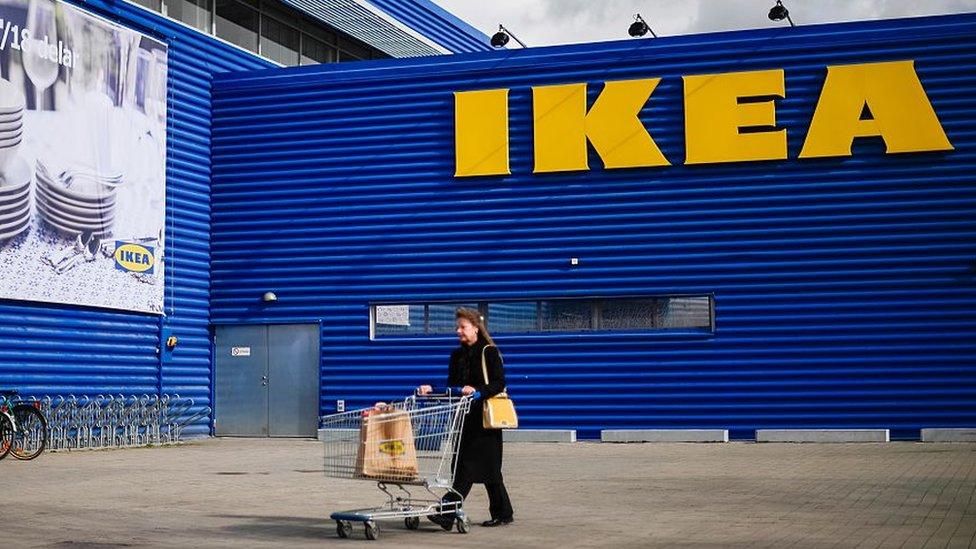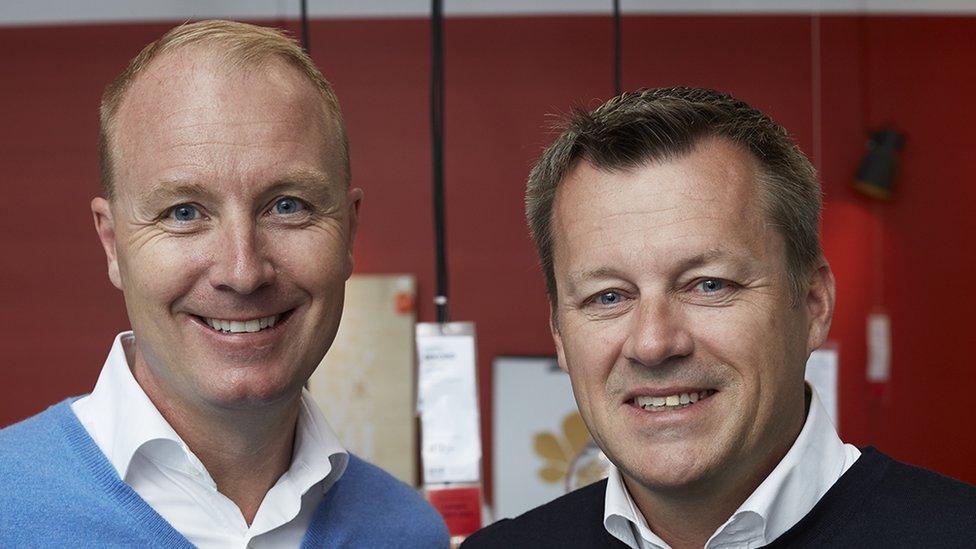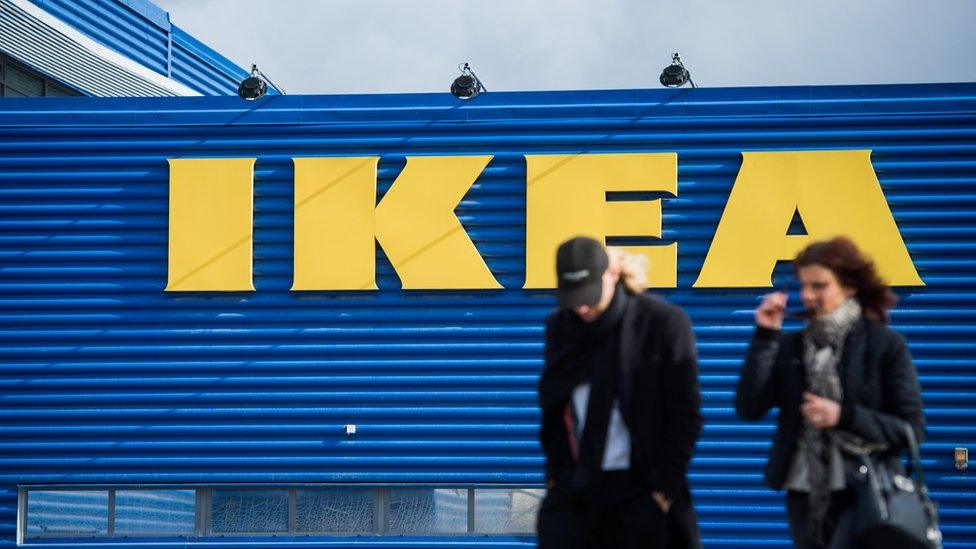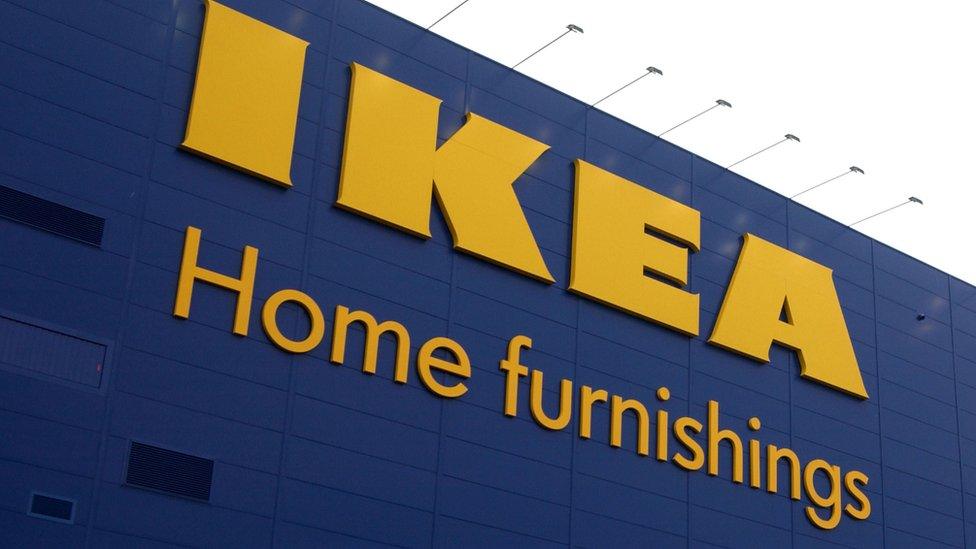Ikea boss says it pays fair share of tax
- Published

Ikea Group boss Jesper Brodin has told the BBC that the company pays its fair share of tax worldwide.
The flatpack furniture retailer, which has more than 360 stores, paid 25% tax last year, Mr Brodin said.
EU tax officials opened an investigation last month into a separate part of Ikea.
Inter Ikea, which controls the company's brand rights, may have been given unfair tax advantages by the Netherlands, the commission said.
Mr Brodin acknowledged the launch of the EU investigation, but said it was focused on a separate part of the business.
Inter Ikea, which collects royalty payments from Ikea stores, said last month that it believed that the way it had been taxed "has in our view been in accordance with EU rules".

Jesper Brodin (r) took over from Peter Agnefjall (l) last year
Mr Brodin, who took the helm of the Swedish furniture giant last September, said Ikea Group was "a stable payer of tax".
He noted that Ikea's continuing profitability even in the "tough years" after the 2008 financial crisis meant it had consistently continued to pay tax.
"We think it's important to contribute to society in many ways and paying tax is one part of it. We believe we do," he added.
Waste pledge
Mr Brodin is at the World Economic Forum in Davos to talk about the so called circular economy where products are used for as long as possible before being broken down and used to make something else.
Ikea has pledged that by 2020, 90% of its waste will be recycled or incinerated for energy recovery.
Mr Brodin, who was previously head of Ikea's supply chain and product range business, said the aim was not at odds with its role as a retailer creating and selling more products.
"All products will sooner or later reach the end of their life," he said.
He said the group's growing scale - it now has 362 stores globally - meant it could make an impact on the issue.
The company is currently trialling different solutions in different countries.
In Japan, for example, customers can sell their furniture back to Ikea to be resold.
Whereas in Belgium customers can get their furniture repaired or donated to charity.
"Our markets are at different levels of maturity. It might not be one size fits all," he added.
- Published18 December 2017

- Published17 October 2017

- Published14 November 2017
